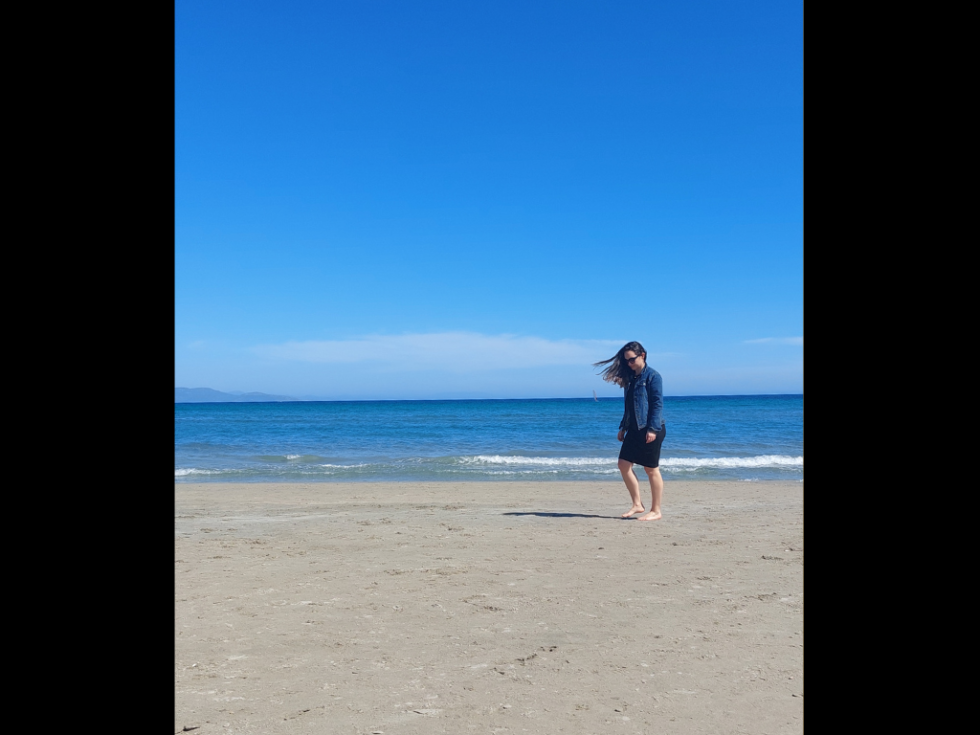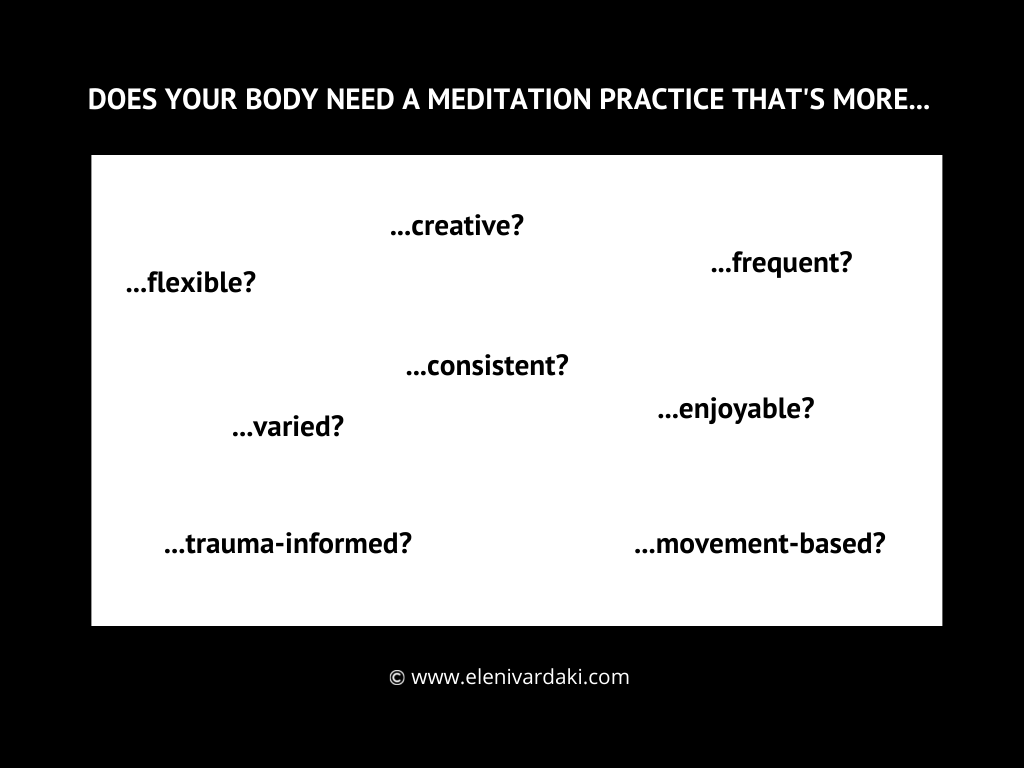
Meditation Inspiration: Where to Start?
WHAT’S THE ISSUE: Know that science shows meditating is good for your mental health, but don’t know where to start? You may be surprised to know that I’m meditating in the picture above. It’s a Walking Meditation. It’s a doable kind of movement meditation for when we’re on the go during the working week. Walking meditations are also great for when we want to relax and enjoy the nearby nature on the weekend (like I was doing here). I hope the following reflection questions spark the meditation inspiration you seek; starting a new habit can be the hardest part.
MEDITATION INSPIRATION: "WHAT DOES MY BODY NEED?"
“There are now hundreds of published scientific papers on the clinical efficacy, and even the neuroscience behind mindfulness.“
Dr Judson Brewer (2021) Unwinding Anxiety
You may find yourself thinking about how you “should” start meditating more when you know the mental health benefits. Thoughts like: “I really SHOULD meditate every morning”, “I SHOULD start meditating again; it helps me, when I do it”, or even “I should go back to meditating for 40 minutes every weekend; 10-15 minutes isn’t enough for me, right now”.
These thoughts can keep popping up in your head, without any real change in your daily routine or habits. And you can end up feeling stuck, disappointed in yourself, or even just frustrated by how hard it feels to follow through.
But turning thoughts into habits requires getting your body on board. So see if you can shift your focus away from “should”-ing all over yourself…to asking your body what it needs.
Gaining clarity on what’s holding your body back from saying “yes” to your thoughts is the first step to addressing the disconnect between your thoughts and actions. You can make a note of any words that resonate with you from this list to help you gain clarity, or add your own.

I encourage you to ask yourself these questions in a way that allows you to take the context into account. Context matters if you want to build self-care nuggets of meditative moments into your life in a way that feels natural and effortless. Eventually, meditating daily becomes a habit that’s part of your new way of being in the world.
What works well for you in one context may not work so well in another. I’ve found that certain types of meditation are great for grounding me in the present moment when I’m on holiday. Then there are other types of meditation that work better for me when I’m working. Some work best to help me be fully present when I’m about to give a talk. Others work better to help me be fully present when I’m about to go into a private EFT Tapping therapy session with a client. It depends on the context.
(SIDE NOTE) Do you want to learn about different types of meditation? Then you may find this article I wrote interesting: “Types of Meditation for Stress Management”
MEDITATION INSPIRATION: "WHAT'S DOABLE?"
“When you dream about making a change, excitement inevitably takes over and you end up trying to do too much too soon. The most effective way I know to counteract this tendency is to use the Two-Minute Rule, which states, ‘When you start a new habit, it should take less than two minutes to do.’“
James Clear (2018) Atomic Habits
Chances are that you are here because you have quite a busy, full life (maybe even a bit too busy for your personal needs). I’m guessing you really want to live a full and meaningful life, but sometimes worry and stress about not letting other people down. You value working on being your best self in all areas of your life.
You know meditating regularly does you a lot of good to this end, but you struggle to make it a priority. If this is you right now, you may be setting the bar too high in terms of how long, or how frequently, you believe you ‘should’ meditate at this point.
Have you tried making your habit so small that it’s easy to make a start? The best advice I heard on how to successfully build healthy habits is summarized in this classic TED talk by Stanford Professor BJ Fogg, “Forget Big Change, Start With a Tiny Habit” (see below).
I’ve been applying this psychology research for teaching good habits in my work with adults and kids for years because it works! When I find something that works, I love to spread the word.
So what’s doable for you, right now? If you rarely remember to meditate, you could start with the goal of meditating for just 2 minutes a day. That’s doable, right? Or even just 1 minute a day. If you have already established a habit of meditating for 10-15 minutes 2-3 times a week, a doable goal may see if you can increase it to 4-5 times a week.
It depends on your starting point. Thinking you can go from not meditating at all, to meditating 4-5 times a week is unrealistic. It’s like expecting a baby to run before it can walk. You’re setting yourself up to fail!
Better to start small, celebrate your small wins, and build momentum for the long-term. Sustainable, incremental progress that increases over time is more effective than an over-enthusiastic start that fizzles out over time.
FINALLY, ASK YOURSELF: "WHAT DO I WANT TO DO NEXT?"
Seriously though, think about it…what DO you want to do next? Do you feel like you:
- are ready to schedule your doable meditation self-care plan into your diary/calendar?
- want to do a bit of journaling to reflect on your key takeaways from reading this article?
- are ready to acknowledge any resistance to taking action that’s coming up for you?
Do you want to just pretend you never read any of this and just get on with your day? That’s fine, by the way. You may not be ready to make the changes in your life that you would like to work on, right now. And that’s OK. This may not be the right time for you in your life.
Be honest with yourself about whether you want to take any action right now, including whether the action you take is to decide not to act right now. Your body will tell you when it’s ready to act.
REFERENCES
About the author

Eleni Vardaki works to support people who are ready to take their well-being and/or academic habits up to the next level. Her mission is to help bridge the gap between mainstream education and the well-being skills we need to thrive. She believes in doable, sustainable interventions in family and school cultures that value child and adult wellbeing highly. For business inquiries you can email her at eleni@elenivardaki.com



